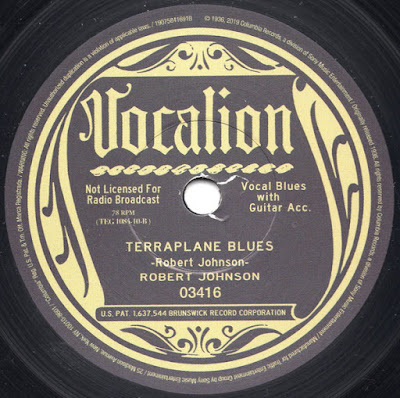 |
| Your blind date is here. Image: Discogs |
I once saw a mail-order offer for this album in Metal Edge magazine back in 1988. The cover of this made me do the same double take you probably just did. So if you haven't already gotten the trigger warning; This is not an Anne Murray-type album.

"......UNDERSTAND??!!" Image: Discogs
But why it was mail order was an interesting fact of music distribution in the 1980s. Some major retail chains back then (including Walmart) simply did not stock then-independent labels such as The Great Kat's then-label, Roadrunner Records. And perhaps partly due to the then ongoing PMRC controversy and Roadrunner's then 1980s line-up of mostly scare-your-overly-religious-parents satanic shock metal bands, such as Obituary, Mercyful Fate and it's frontman, King Diamond that were hugely popular in the headbanger underground of the 1980s.
 |
| "And always remember to brush and floss daily, limit sweets, and get a dental check-up twice a year. Mr HappyHorns....AWAAAAAAYYYYY!!!...." Image: Discogs |
And in the 1980s, many independent record stores in America outside of larger urban centers were being wiped out by mall chains, such as Sam Goody, Musicland and Wherehouse, which typically only had just enough floor space for the mainstream major label hit albums (though you could special order some releases through some chains, you usually had to pay more.)
So indie labels (even a few majors) often sold direct through fan magazines such as Metal Edge.
 |
| Your eyes almost melted from the bright, airbrushed full color glossiness of every page of Metal Edge. |
And The Great Kat's Worship Me Or Die! was one ad for a record that somehow stuck in my head. Without even hearing it.
But even in my then heavy metal-centric stomping grounds of Lynnwood, Washington (circa 1988) and even in nearby Seattle, this album was somehow impossible to find locally. In any format.
So while promising myself I'd order a copy Worship Me Or Die! (I mean, like, that cover), other albums distracted me. I was a very foolish mortal. And soon, I would really be in for it.
 |
| Image: Discogs |
I almost completely forgot this album until I came across a miracle copy of this LP at a Goodwill a decade later. I grabbed it. Took it home, wiped the dust off the grooves. Put on my headphones. And began my atonement.
And I was instantly disappointed. In myself. For not ordering this record when I should have. Because this album would have been the de facto soundtrack of a lot of headbanger parties, had I heard this back then. Because beneath the layers of metal cheese (and she didn't miss a single cliche) is some of the fastest speed metal guitar fretwork I've ever heard then. Or since.
An institutional grade Cuisinart could not shred speed metal lead guitar like The Great Kat. Forget the lyrics. I kept putting the needle back at the beginning of her guitar solos; What the hell did I just hear?
Even with all the thrash/speed metal I've heard up to this point, I still can't comprehend how this still exists absolutely ignored by the mainstream (ahem, rock radio.) But fortunately, you can hear this lost classic in it's entirely on Spotify and YouTube.
The Great Kat (aka Kathrine Thomas) is a Julliard-trained classical musician, which other than actual demonic influence might explain her amazing fretboard dexterity. She played classical music before crossing over to metal. She plays both violin and guitar.
Her later releases, while not quite as over the top as Worship Me Or Die! combined classical music with speed metal. Her skill getting even more shockingly fast with each new album.
 |
| The Great Kat Beethoven on Speed (1990) |












































